|
|
|
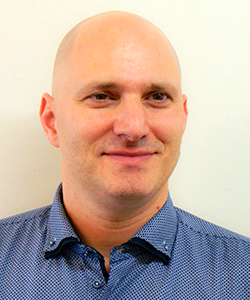
|
Adam DENES
Institute of Experimental Medicine (IEM), HU
Adam Denes is a principal investigator at the Institute of Experimental Medicine (IEM), Budapest, Hungary and a visiting scientist at the University of Manchester, UK. He is heading the Laboratory of Neuroimmunology and the Cell Biology Center in the IEM. Research of his lab focuses on neuroinflammation, mechanisms of brain injury and brain-immune interactions in health and disease. They have explored mechanisms through which inflammatory actions and common comorbidities in stroke contribute to brain injury, and investigated the impact of brain injury on peripheral inflammatory processes. Recent studies of his research group funded by the European Research Council revealed the role of microglia in regulating neuronal activity and cerebral blood flow, through which microglia emerge as a key cell type to influence common neurological disorders.
|

|
Li DENG
Helmholtz Centre Munich, DE
Li Deng is the Chair Professor of “Prevention of Microbial Disease” at the Technical University of Munich and the Helmholtz Centre Munich in Germany. In contrast to the classical approaches, the Deng lab uses single-cell technologies, multi-omics, culture-independent techniques, and machine learning to isolate novel phages, develop phage-based therapeutics, and understand the underlying mechanisms of phage-host interactions and their impact on the human host. They apply the knowledge gained for targeting pathogenic bacteria and ameliorating disease severity by restoring healthy microbiota in multiple diseases or conditions like stunting, inflammatory bowel disease (IBD), colorectal cancer (CRC), graft-versus-host disease (GVHD), and beyond.
To facilitate the acceptance of phage therapy, which uses phages to target pathogenic bacteria, in Germany, the Deng lab has developed highly efficient phage cocktails against multiple critical multiresistant bacteria, such as Acinetobacter baumanii, Pseudomonas aeroginosa, Klebsiella pneumonia, and Staphylococcus aureus. In addition, they promote increasing collaborations between scientists and physicians toward defining a roadmap for future translational phage research in Germany.
|
 ©David Hutt
©David Hutt
|
Ananya Jahanara KABIR
King's College London, UK
Ananya Jahanara Kabir works on the intersection between various artistic forms (literature, performances, films, and visual arts) and collective memorialization and forgetting. Her recent research focuses on transoceanic creolization through cultural production across the Atlantic and Indian Ocean worlds. She has been awarded several prizes for her innovative work in the Humanities. Her ERC project MODERNMOVES was an interdisciplinary investigation into African-heritage social dance and music. It explored how issues of colonialism and slavery as well as gender have influenced Afro-diasporic social dances.
|
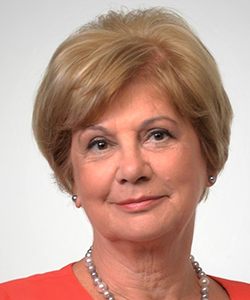
|
Eva KONDOROSI
Biological Research Centre, HU
Eva Kondorosi directs research on Rhizobium-legume symbiosis in the Institute of Plant Biology at the Biological Research Centre, Szeged, Hungary. Her primary research field is symbiotic nitrogen fixation with recent focus on plant-controlled differentiation of bacteria. This led to the discovery of a unique, symbiosis-specific peptide family in legumes acting as plant effectors of bacterial differentiation. Her work confirmed that many of these peptides have potent antimicrobial activities against bacterial and fungal pathogens and could be powerful antimicrobial drugs to be used in medicine and agriculture.
She is a member of the Hungarian Academy of Sciences, the US National Academy of Sciences, Academia Europaea, Leopoldina, the French Academy of Agriculture, the European Academy of Microbiology and the European Molecular Biology Organization. Currently she is member of the Group of Chief Scientific Advisors of the European Commission and chair of Life Sciences at Academia Europaea. She was member and Vice President of the European Research Council and Life Science domain coordinator and member of the UN Secretary General’s Scientific Advisory Board and the Board of Directors of the International Society for Molecular Plant-Microbe Interactions. She received several prestigious awards including the Balzan Prize, the Széchenyi Prize and the prize of the International Society for Molecular Plant-Microbe Interactions.
|
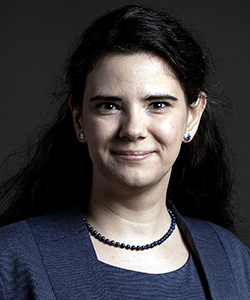
|
Ágnes KÓSPÁL
Research Centre for Astronomy and Earth Sciences, HU
Ágnes Kóspál is an astrophysicist. After obtaining her PhD in Hungary in 2009, she was a postdoctoral fellow at Leiden Observatory and at the European Space Agency (Netherlands). Currently, she leads a research group at Konkoly Observatory (Hungary), with funding from the European Research Council and the Hungarian Academy of Sciences. She won the L'Oréal-UNESCO For Women in Science International Rising Talents prize. With her group members, she studies the formation of Sun-like stars and their exoplanetary systems by investigating the physics and evolution of circumstellar disks. She is an internationally recognized expert on young eruptive stars and episodic accretion.
|
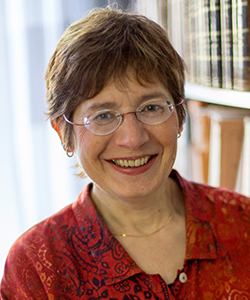 ©M. Wallerstedt
©M. Wallerstedt
|
Margaret HUNT
Uppsala University, SE
Margaret Hunt works on early modern European history, with a focus on social and intellectual history, comparative imperialisms, slavery, European/South Asian encounters, maritime and military history, and women ad politics, and history of sexuality. She is also an expert in music. She is currently working on the human impact of early European global commercial expansion. She is currently leading the project “In Pursuit of Global Knowledge: Scandinavian Ocean Travelers 1650-1810”. It focuses on a collection called the Prize Papers, which come from Scandinavian ships seized by the British Navy or privateers during various wars. The project uses these documents to explore knowledge and knowledge transfer between non-elite people (sailors, skippers, ocean travellers) in an age of global trade and travel.
|

|
Jaroslav NEŠETŘIL
Charles University Prague, CZ
Jaroslav Nešetřil is a Czech mathematician and computer scientist, professor of Geometry and Topology at Charles University in Prague. He has been visiting professor at several leading international institutions including John von Neumann professorship at Universitat Bonn, University of Chicago, University of California in Berkeley and San Diego as well as Microsoft Research and Bell Labs. He is founding director of Institute of Theoretical Computer Science and DIMATIA Centre at Charles University. His work spans modern Combinatorics and Discrete Mathematics, particularly Ramsey Theory, complexity of algorithms (CSP particularly), theory of sparsity and of structural limits. He is the author of seven books and many scientific publications in several areas including history and art. He is member of Czech Learned Society as well as Academia Europeana, Hungarian Academy and Nordrhein-Westphalische AdW. He holds several awards including Order of Merit of Czech Republic and two honourable doctor degrees. He is an influential teacher with more than 20 PhD students.
|
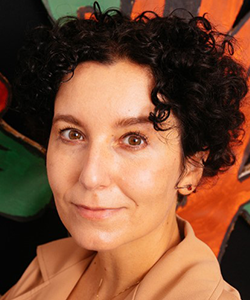
|
Justyna Agnieszka OLKO
University of Warsaw, PL
Justyna Agnieszka Olko works on ethnohistory, anthropology, sociolinguistics, and contact linguistics. She collaborates with researchers and activists committed to revitalizing endangered languages of ethnic minorities in Poland and beyond. Her first ERC project CULTURECONTACT focused on the systematic study of different forms of cross-cultural transfer between the Nahua and European worlds. It studied the correlation of language phenomena with more general contact-induced culture change, including especially evolving forms of political, social, and municipal organization in the native world. Her second ERC project MULTILING-HIST aims to reconstruct and explain the mechanisms behind the emergence, continuity, reduction, and loss of multilingualism in differing historical, geographical, social, political, and cultural contexts. It addresses the complex, multi-level dimensions of historical and contemporary multilingualism. It focuses on multilingual hotspots from Central-Eastern Europe, Mesoamerica, South Africa and the Archipelago of Vanuatu
|
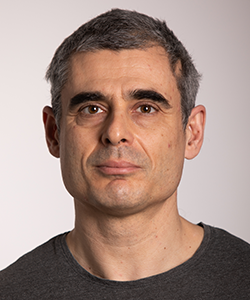
|
Csaba PÁL
Biological Research Centre, HU
Csaba Pál is a Hungarian biologist at the Biological Research Centre (BRC) in Szeged, Hungary. His laboratory is part of the Synthetic and Systems Biology Unit at BRC. His research is at the interface of evolution, antibiotic resistance and genome engineering and he has published over 70 scientific publications in these areas. Csaba Pál’s laboratory found that multidrug resistance mutations in bacteria simultaneously enhance sensitivity to many other unrelated drugs (collateral sensitivity), and explored the underlying molecular mechanisms. Csaba Pál received several awards, including the Ignaz Lieben Award (2009), Szent-Györgyi Talents Award (2014), and the Bolyai Prize (2015). In 2016, he became a member of Academia Europaea. In 2017 he was selected as EMBO (European Molecular Biology Organization) member and in 2018, he became a member of the FEMS (Federation of European Microbiological Societies).
|
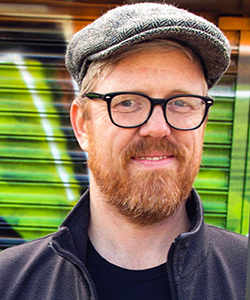 ©MacSweeney/Provision
©MacSweeney/Provision
|
J. Griffith ROLLEFSON
National University of Ireland - University College Cork, IR
Griffith Rollefson’s research focuses on African American music expressions, from hip-pop to jazz. He is particularly interested in the role these music forms play in expressing postcolonial and anti-racist voices and how Black American music can revalue local and indigenous knowledge around the world. His ERC project CIPHER investigates the spread of hip-hop cultures from musical, lyrical, artistic, and performative perspectives. It uses a combination of ethnographic, community-engaged methods, arts practice methods, and digital methods.
|
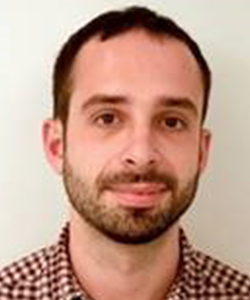 |
Ingo WALDMANN
University College London, UK
Ingo Waldmann completed his PhD in characterising extrasolar planets, planets orbiting other stars. He now is an Associate Professor in astrophysics at UCL, deputy director of the UCL Centre for Space Exochemistry Data and a Turing Fellow at The Alan Turing Institute. He is the data analysis lead of the ESA Ariel mission to be launched in 2029.
Dr Waldmann’s research focuses on the development of machine and deep learning algorithms to long standing data analysis and modelling problems in extrasolar planet detection and characterisation. Detecting these faint signals requires pushing techniques and instrumentation, such as the Hubble Space Telescope, to their very limits. This work was recognised by the Royal Astronomical Society Fowler Award. In 2018, Dr Waldmann was awarded an ERC Starting Grant, ExoAI, for his research into deep learning algorithms for data analysis of planetary and exoplanetary data.
|
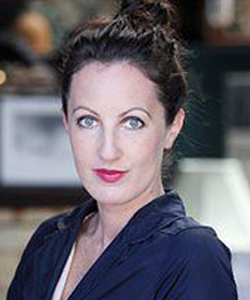 |
Khadija ZINNENBURG CARROLL
University of Birmingham, UK
Khadija Zinnenburg Carroll works on colonial histories through contemporary art. She focuses on issues related to restitution, indigenous heritage, and colonial museums. Her research focuses on performances, installations, books, and films. Her ERC project REPATRIATES examines how contested objects can be conceived and exhibited sensitively. It develops strategies for making artistic responses to this material, proposing ways forward for the decolonization of cultural property. REPATRIATES proposes new models of co-ownership and aspires to shape a pan-European response to the complex political, historical, and affective dimensions of the repatriation of cultural assets.
|
|
|
|


 ©David Hutt
©David Hutt


 ©M. Wallerstedt
©M. Wallerstedt



 ©MacSweeney/Provision
©MacSweeney/Provision



